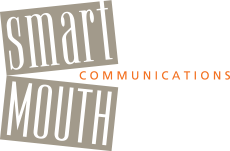I went to a storytelling event a week ago Friday night. It was cast as lovingly competitive, meaning the audience gave huge amounts of support and encouragement to each volunteer storyteller – whose names were pulled out of a bowl – but there were teams of judges and (friendly, gentle) scoring.
The event was sold out and not until about halfway through did I realize that a lot of people in that packed room had come prepared with a story and put their names in the bowl hoping to be selected. And there I found myself, purely a spectator, in a room of would-be storytellers, which made me ponder whether I would be willing to do this sometime – after all, I coach people on storytelling (albeit usually for business audiences) – and, if not, why, which is an entirely different topic!
Apart from being wildly impressed and deeply touched by the 10 people who were willing to “put themselves out there,” I was struck by two things about prepared presentations, which I want to share as both are extremely informative lessons.
First, writing out a presentation, memorizing and then delivering it does not sound natural; it sounds like you wrote it out, memorized and then delivered it.
There are certain words or phrases – e.g. “irrespective of” or “after careful consideration” – that work great when you write them and a reader reads them but honestly, they sound stilted when you say them (unless, of course, you’re in a courtroom or some other formal setting).
Writing out your thoughts to prepare a story or presentation is great, but you’ll need to fine-tune your draft by speaking the words out loud to make sure you sound like you’re talking – and, in the case of storytelling, like you’re talking off the cuff, as if you’re sharing with friends.
It’s not that memorization itself is bad or wrong, it’s that you need to memorize the right words, words that fit the occasion and sound natural. In the case of storytelling, those words should sound more chatty than dissertation-like.
Second, you can kill the impression an audience has of your perfectly great presentation by running over your allotted time.
 So at this event, I loved that the timekeeper used a harmonica to alert both the storyteller and audience that the allotted 5 minutes was up … and then 5 minutes 30 seconds … and finally, 6 minutes. At 5 minutes and 5 minutes 30 seconds, the harmonica merely chimed in to give a friendly nudge; at 6 minutes, the harmonica played until the storyteller wrapped it up.
So at this event, I loved that the timekeeper used a harmonica to alert both the storyteller and audience that the allotted 5 minutes was up … and then 5 minutes 30 seconds … and finally, 6 minutes. At 5 minutes and 5 minutes 30 seconds, the harmonica merely chimed in to give a friendly nudge; at 6 minutes, the harmonica played until the storyteller wrapped it up.
One young woman was telling a pretty interesting and suspenseful story when the harmonica hummed the first signal. I wondered how close she was to the end, and I was eager to hear what the moral was going to be. When the harmonica hummed the second time, I actually started to feel anxious for her, I still wondered if she was close to her conclusion, and I still was pulling for her. At 6 minutes, with the harmonica playing background music to her increasingly speedy delivery, I forgot all about the interesting, suspenseful story, I forgot about my empathy for her and the telepathic encouragement I was sending her, and instead, I found myself (perhaps a bit too harshly) thinking she just bombed. Ouch!
Going over time is buzzkill. Audiences just don’t tolerate it very well. In your preparation, you’d be wise to leave a cushion for yourself and plan to take less time than you’re allotted. No one has ever complained about a speaker who finishes early!
- New Agey Advice for Nervousness - November 3, 2022
- Your Passion Can Go a Long Way Toward Building Connection - October 10, 2022
- Keep stage fright a private matter while you’re speaking on a public stage! - August 11, 2022



